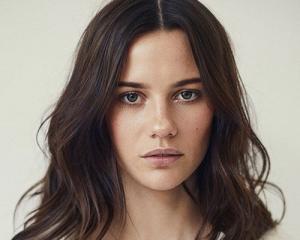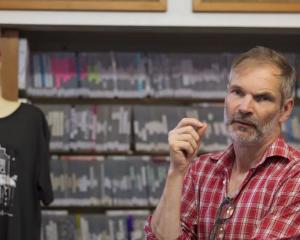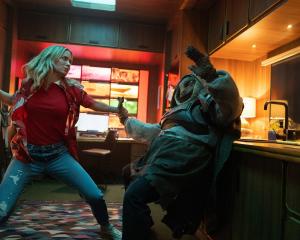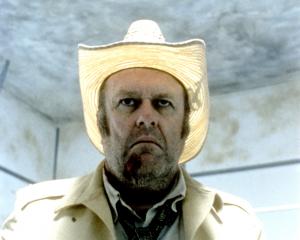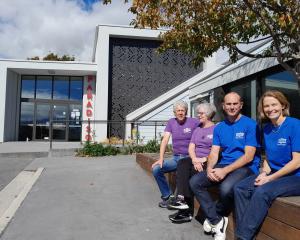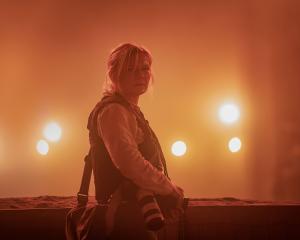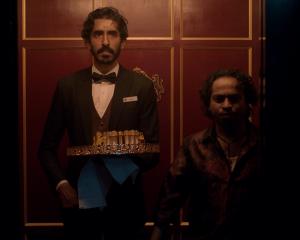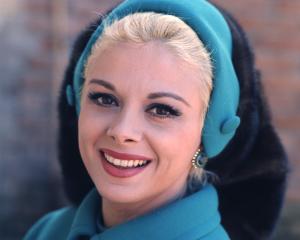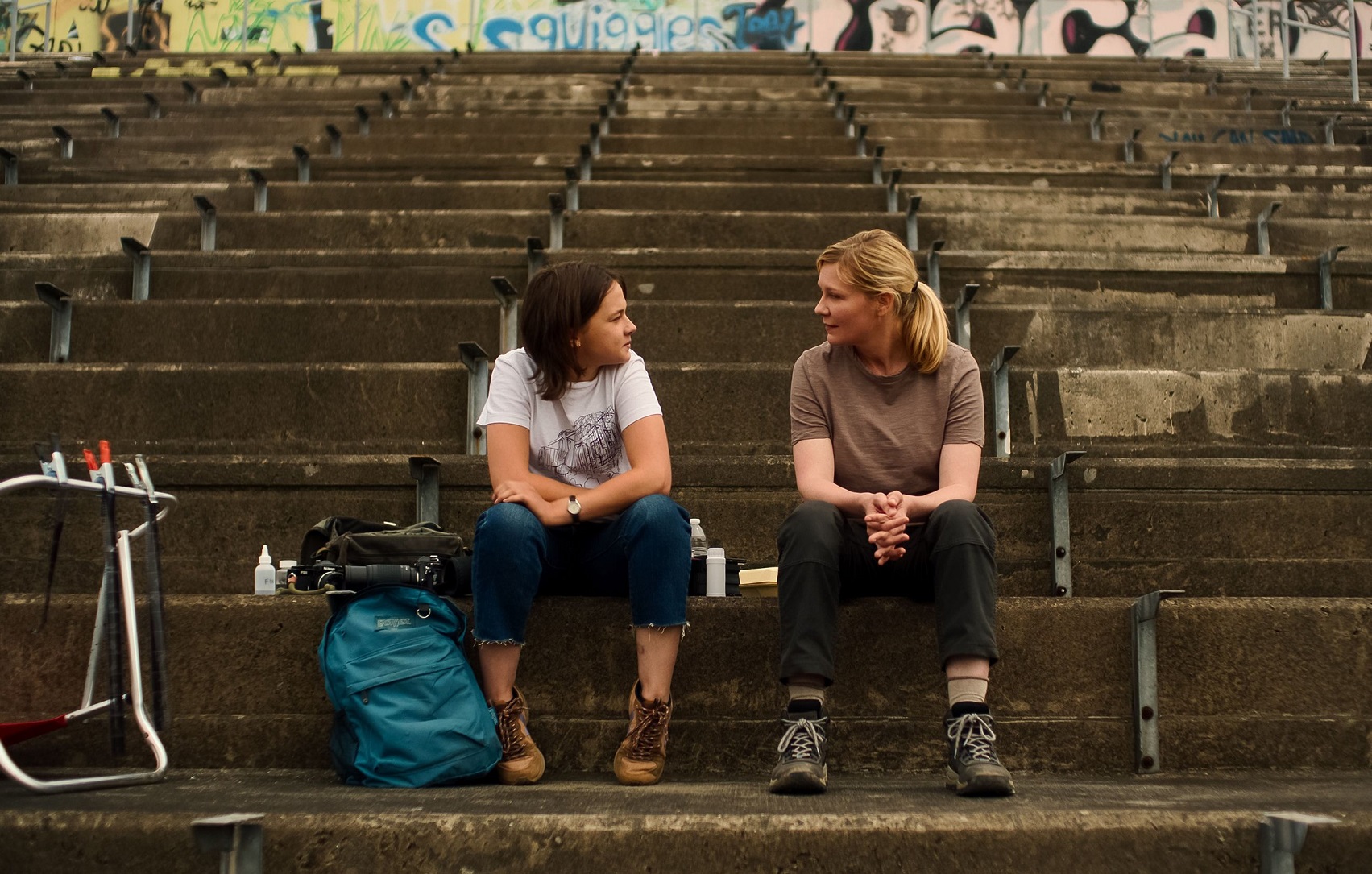
There is a purpose-built powder keg of controversial talking points and hot-button ideas in Civil War. In the near-future world depicted in the film, California and Texas align to take up arms against a fascist, corrupt third-term president who has disbanded the FBI and turned the military against US civilians.
The movie joins other evocative dystopian portraits by Alex Garland, whose previous work as writer-director includes Ex Machina and Annihilation, as well as the screenplays to 28 Days Later, Never Let Me Go and Dredd. Garland’s latest is also a tender, emotionally complex look at legacy and what we leave behind, driven by the performances of Kirsten Dunst and Cailee Spaeny as two photojournalists, a veteran and a novice, trying to process all that they see in a climate that has become deeply sceptical of the press.
In the film, a group of journalists make their way from New York to Washington, DC, hoping to get what will likely be the last interview with a besieged president on the brink of being violently deposed. Photographer Lee (Dunst) and her reporting partner Joel (Wagner Moura) have reluctantly agreed to give a ride to an ageing New York Times correspondent, Sammy (Stephen McKinley Henderson), when they also take on Jessie (Spaeny), an aspiring, camera-clad shooter.
Their journey takes on an increasingly hallucinatory quality as they travel through a broken America, repeatedly encountering situations where it is unclear who is fighting against who and why. It all builds to a staggering battle sequence in Washington and the White House. Along the way, Lee seems less and less sure of why she is doing this work, while young Jessie is drawn closer to the flame of danger.
"I felt really shaken," Spaeny says of seeing the film for the first time. "It’s very immersive. It’s a film that sort of grabs you and never lets you go until the very end. There’s no real room to breathe."
Recognising the potentially divisive nature of Civil War, she adds, "There are a lot of purposes for film, but I think one of the great things about film is that we can sort of process our deep fears and emotions through cinema. And I think that’s what this film did. And I hope people can work through their thoughts and feelings through this movie."
Garland finished the script in 2020, ahead of the violent events of January 6, 2021, in the United States and January 8, 2023, in Brazil, or Russia’s invasion of Ukraine in February 2022 — incidents of political unrest that would have seemed obvious inspirations for the story, had they not come after it was written. As unfolding news in the real world uncomfortably mirrored developments in the script, it’s easy to wonder whether the film ever began to feel like a live grenade waiting to go off.
"The implied question is: Is this wise or not wise?" Garland says on a recent Zoom from England.
"And I do not know the answer to that. I do feel that there is a responsibility that exists when you put something into a public space. That responsibility absolutely does exist. So for example, if this did not feel like an anti-war film, if it had all the same subject matter, but was in some ways slightly celebratory, I could imagine that being problematic."
Volume from either side of the political divide can potentially drown out other points of view, Garland says.
"I think on balance, I am more concerned at the moment with conversation being silenced than I am with it being had. The voices that are making loud, insistent assertions — to me, acquiescing to that feels more dangerous. I could be wrong, but that’s my gut feeling."
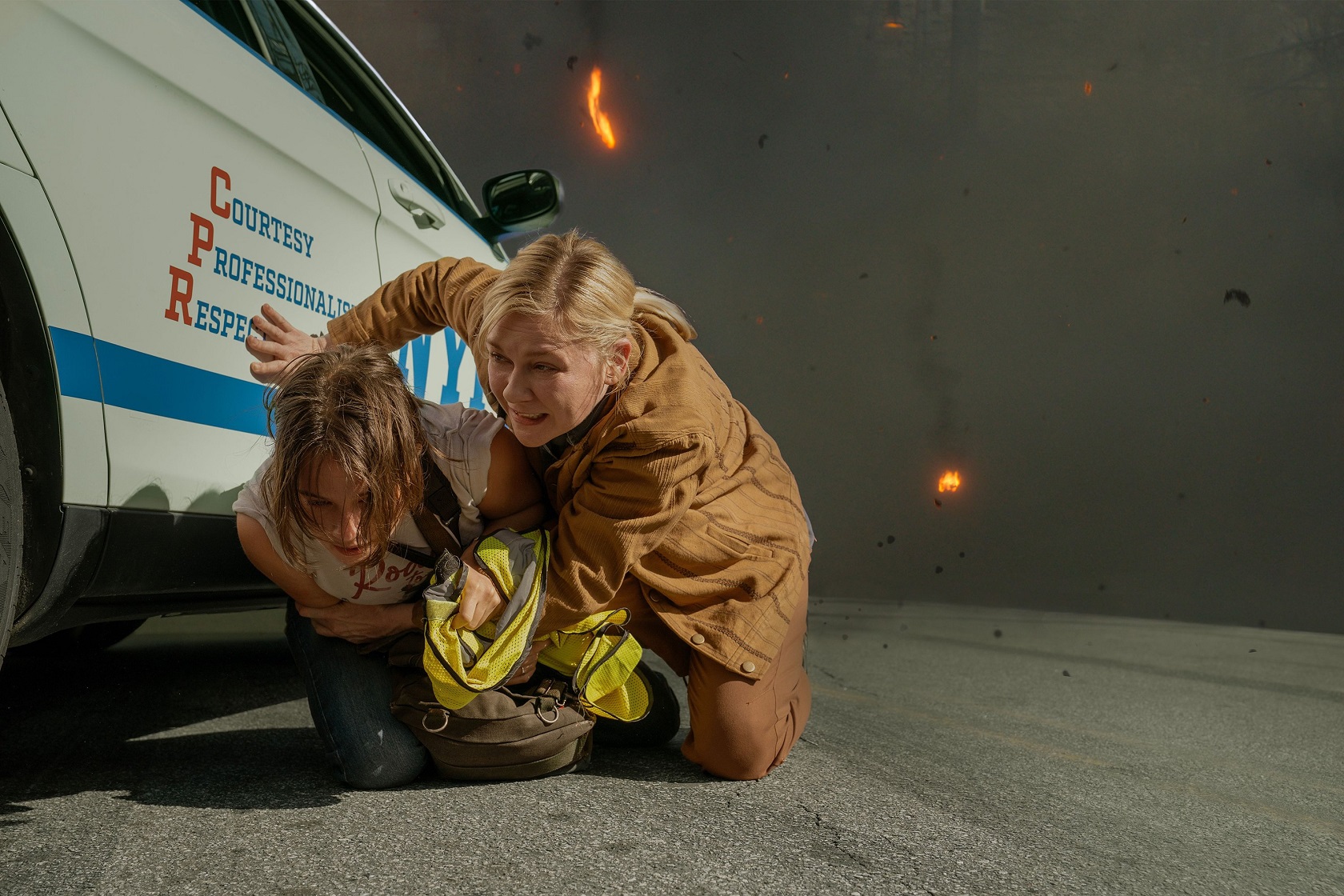
If the onscreen dynamic between Lee and Jessie forms the emotional core of the movie, a comparable bond seems to have grown between Dunst and Spaeny. Dunst, 41, has been working since the age of 3, making her film debut at 6 years old. Spaeny, 25, previously worked with Garland on the 2020 television series Devs and won the Volpi Cup for best actress at last year’s Venice Film Festival for her depiction of Priscilla Presley in Sofia Coppola’s Priscilla.
Spaeny got that role after Dunst recommended her to Coppola, having met on Civil War. Dunst has a relationship with Coppola that goes back some 25 years, having previously worked together on The Virgin Suicides, Marie Antoinette and The Beguiled.
"There are certain actors you work with and you just feel free and present and on the same page of how you approach things, and I immediately felt that with Cailee," says Dunst. "The camera, the crew goes away and you’re really in something with somebody. And that’s the most magical feeling on set. Cailee was such a present actress, and there was so much going on with her. We really looked at each other and responded to each other. And that doesn’t always happen."
For his part, director Garland says any extratextual relationship between Dunst and Spaeny was a fortuitous byproduct and not by design.
"First and foremost, those two are terrific actors," he says. "And there’s something very simple about that. However, Kirsten, as we know, has grown up in this zone and in this world, and she carries all that lived experience with her. And that’s a journey Cailee is starting. So there is a kind of correlation. The people in that industry, in that space, are under strange pressures, very intense pressures that can lead them to become jaded unless they find a way to negotiate it."
Though Civil War seems built to jump from the entertainment pages to the editorial section, providing fodder for various perspectives across the political spectrum, Garland and his collaborators intend it first and foremost to get people out of their entrenched ideological positions and back to a place of listening and sharing ideas.
"I said to someone way back when I was first doing this, ‘I want to do a film where journalists are the heroes,’ and they said, ‘Are you crazy? Everybody hates journalists’," says Garland. "It actually really jolted me. Journalism is 100% required. A free, fair press is an absolute necessity. It’s like saying, ‘I hate doctors.’ What are you going to do without them? And at the same time I was interested in, why is journalism not trusted in the way it used to be?"
To that end Garland was careful in how he depicted the journalists at work. "One of the things I tried to do was show journalists as reporters, intentionally keeping bias out of their reporting. They even have a conversation about it at one point, like, our job is to record this and send it back, in order to make other people ask questions. And then the film is echoing that by functioning like a reporter."
The relationship between the characters played by Dunst and Spaeny feels like the essence of what Garland was trying to explore against the larger canvas of the movie’s politically-charged events. At a time of deep division, connecting has become more vital than ever.
"This is a movie about anti-polarisation and that’s not just happening in our country, but all over the world," says Spaeny. "If we can start having conversations, if we start listening, there is a version of this where we don’t end up in a position where this is possible."
"It’s a warning of what happens when you don’t treat people with humanity, stop listening to each other," says Dunst. "At the end of the day we’re all people with families and different religions and a democracy and that is something that we should be very respectful of."
Being released into the pressure-cooker atmosphere of an election cycle makes the film feel all the more vital and necessary. "This film, it’s hard to talk about because you want it to really help open up conversations — real conversations," Dunst says. "It’s like, what are the consequences? The plausibility of a modern civil war unfolding in America is pretty f***ing scary and it shows you no nation is immune to war. So get your s*** together." —TCA

